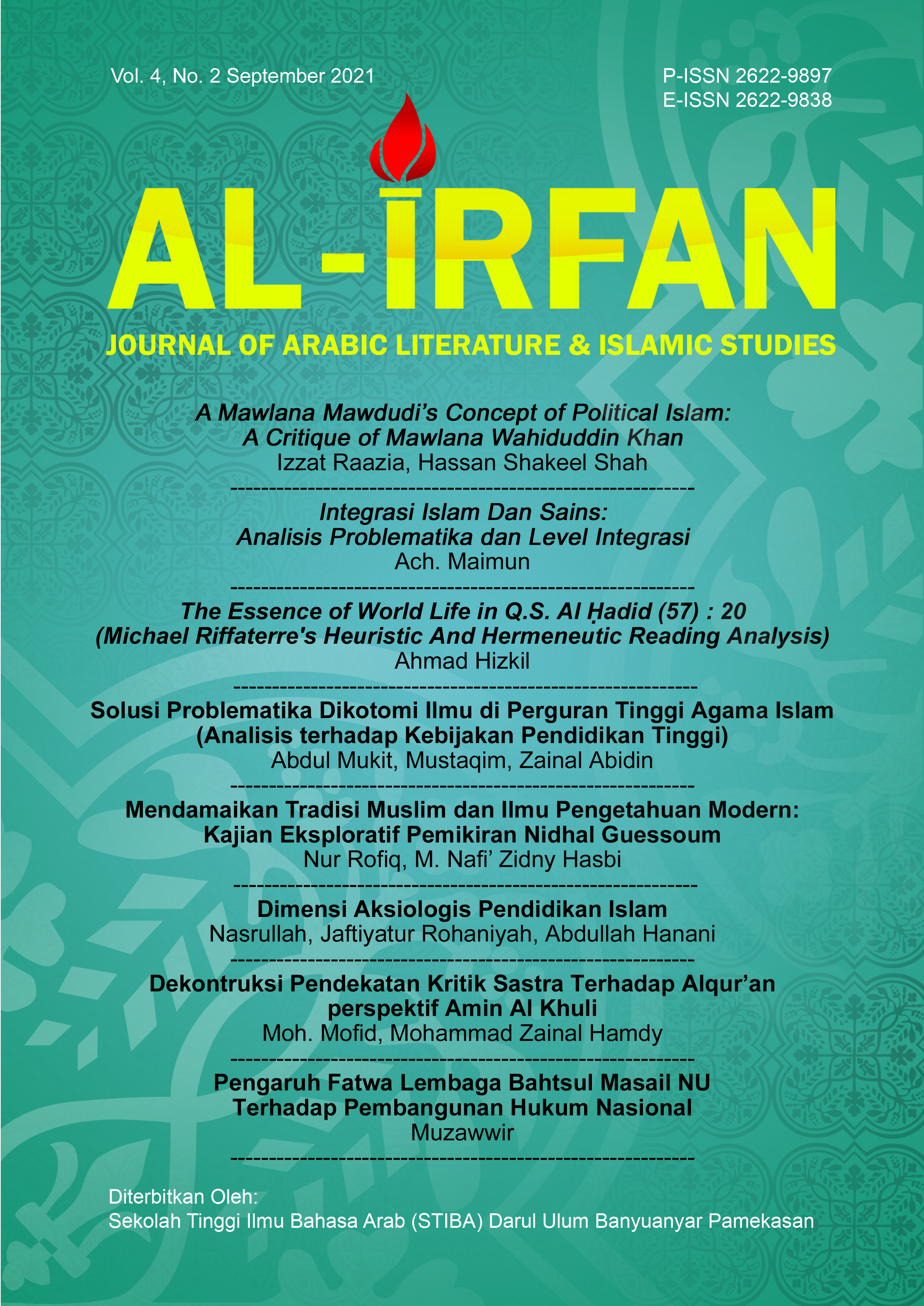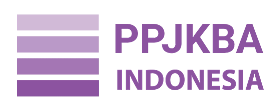Solusi Problematika Dikotomi Ilmu di Perguruan Tinggi Agama Islam
Analisis terhadap Kebijakan Pendidikan Tinggi
DOI:
https://doi.org/10.36835/alirfan.v4i2.4975Keywords:
dichotomy, policy, knowledge, al-'ulum, taqsimAbstract
This study seeks to explore the problem of the dichotomy of science and its solution in Islamic Higher Education. which is analyzed in the perspective of education policy regarding higher education regulations by using the content analysis method in the study of library research. The issue of the dichotomy of science is actually a classic issue of the dark legacy of the past colonialism which Indonesia's founding fathers have been fighting for a long time. This real effort is proven by the issuance of a joint decree initiated by the Minister of Religion, KH. Wahid Hasyim and the Minister of Education of the Republic of Indonesia regarding the implementation of religious teaching in state educational institutions which are stipulated through the Regulation of the Minister of Religion No. 3 August 11, 1950. In the study of Islamic education, there is a classification (taqsîm) of knowledge, the first is al-'ulum al-diniyyah (religious sciences) which is called religious science and the second is general science or general sciences. In essence, Islam has never recognized the dichotomy of science (tafriqh), Islam only recognizes classification (taqsîm) based on the sequence and stages of learning, starting from fardlu 'ain and fardlu kifayah. The scholars and figures have formulated solutions starting from the regulatory aspect as stated in the joint regulation of the Minister of Religion and the Minister of Education, several other strengthening regulations through the 2003 National Education System formulation and the Higher Education Regulation, or in the form of ideas and ideas such as the tree of knowledge scheme, integration, integration. -interconnection and Naquib Al-Attas' ideal idea of ​​Islamization.References
Abdurrahman, Ahmad Taufiq. “Rubrik Fokus.†Majalah Qolam, 2008.
Adi, Rianto. Metodologi Penelitian Sosial Dan Hukum. Jakarta: Granit, 2004.
Al-Attas, Syed Naquib. Islam Dan Sekularisme. Bandung: Institut Pemikiran dan Pembangunan Islam (PIMPIN), 2011.
Awaluddin. “Pendidikan Sufistik Kadirun Yahya Dan Implementasinya Di Universitas Pembangunan Panca Budi (UNPAB) Medan.†Universitas Ibn Khaldun Bogor, 2017.
Azra, Azyumardi. Paradigma Baru Pendidikan Nasional, Rekonstruksi Dan Demokratisasi. Jakarta: Kompas, 2006.
Hasbullah. Otonomi Pendidikan. Jakarta: PT. Grafindo Persada, n.d.
Mulyadhi. Membangun Kerangka Ilmu Perspektif Filosofis Dalam Komaruddin Hidayat Dan Prasetyo Hendro Prasetyo (Ed) Problem Dan Prospek IAIN. Jakarta: Depag, 2000.
Nata, Abudin. Sejarah Pendidikan Islam. Jakarta: PT. Grafindo Persada, 2001.
———. Tafsir Ayat-Ayat Pendidikan. Jakarta: PT. Grafindo Persada, 2002.
Rusydiyah, Evi Fatimatur. “Analisis Historis Kebijakan Pendidikan Kementrian Agama RI Masa KH. A. Wahid Hasyim.†Al-Ibroh 2, no. 1 (2017).
Sudiyono. Manajemen Pendidikan Tinggi. Jakarta: PT. Aneka Cipta, 2004.
Surakhmad, Winarno. Pendidikan Nasional Strategi Dan Tragedi. Jakarta: PT. Kompas Media Nusantara, 2009.
Syafri, Ulil Amri. “Analisis Terhadap Ayat-Ayat Al-Qur’an Ber-Lafadz ‘Yâ Âyyuhâ Al-LadzînaÂmanû.’†https://insists.id/metodologi-pendidikan-akhlak-dalam-perspektif-al-quran-1/.
“Pendidikan Dunia Kampus.†http://www.republika.co.id/berita/pendidikan/dunia-kampus/13/03/13/mjlga3-ptain-sulit-bersaing-dengan-perguruan-tinggi-lain
Downloads
Published
How to Cite
Issue
Section
License
Copyright (c) 2021 Abdul Mukit, Mustaqim Mustaqim, Zainal Abidin

This work is licensed under a Creative Commons Attribution 4.0 International License.
Lisensi :
Al-Irfan: Journal of Arabic Literature and Islamic Studies is published under conditions Creative Commons Attribution 4.0 International License / CC BY 4.0 This license permits anyone to copy and redistribute this material in any form or format, modify, modify, and make derivative works of this material for any purpose, including commercial purposes, so long as they credit the author for the original work.











